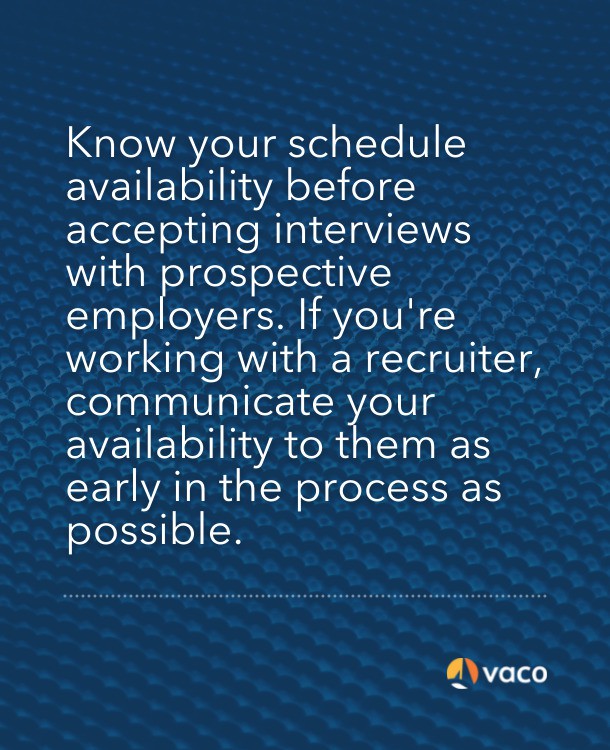In the post-COVID world, millions of employees have switched jobs—many for the first time in years. Millions more are open to making a job change; they’re just waiting for the right opportunity to hit their radar. In the meantime, they’re navigating the logistics of job hunting while also working full-time.
The possibility of landing a dream job can be exciting (and distracting), so it’s important for dissatisfied employees to tread carefully as they search for something new—otherwise, they could end up burning bridges with their current employer and teammates before they’ve even landed an interview.
If you’re like most people, the concept of a new and better job is pretty exciting. You may be tempted to turn in your two weeks before you have that coveted offer letter in hand; with a few exceptions, this is not a smart idea.
There are ways to balance full-time employment while you search for your dream job, without making yourself vulnerable to drama and distraction in the job you already have.
Let’s outline some of the key ways to balance job hunting while you’re still employed full-time, separated by dos and don’ts.
The Dos:
Update your resume
Even if you feel like your resume has been carefully maintained throughout your career, thoughtfully review it before you start applying to jobs. Chances are, there are spots that can be trimmed, enhanced, or updated. For example, say you recently had a big win in your current role (and it can be quantified with stats or percentages). Including that win in resume can make make you stand out among other candidates.
Here are some other considerations for sprucing up your resume before you start the job hunt:
- Remove outdated industry jargon
- Remove job experiences that aren’t relevant to the industry or role you’re seeking
- Remove skills and certifications that aren’t relevant in today’s job market, i.e. being proficient in a coding language that is no longer used
- Consider adding industry-specific keywords and action words—this will help your resume stand out to hiring managers who are weeding through a ton of irrelevant resumes
- Try to trim your resume to a single page or slightly over
Read more: Make a dynamic first impression with an outstanding resume
Update your LinkedIn profile
Your LinkedIn profile is one of the most powerful representations of who you are as a candidate and employee. Recruiters and hiring managers will almost certainly look you up on LinkedIn if they’re considering you for an open role, so make sure your headshot, skills, qualifications, and job experiences are up-to-date.
Tip: Make sure you’ve switched off the option to share your profile updates with your LinkedIn network. If you’ve rarely touched your profile in the past, it may be suspicious to your employer if you suddenly made changes to every section.
Reach out to your professional network
Utilize your professional network to get intel on current openings in their circles. Send a text, shoot an email or drop a DM to colleagues on your social platforms. They may be able to connect you with open roles that weren’t previously on your radar.
If you’re intrigued by a job description, and you know someone who works at the hiring company, reach out to them for more info. They may offer insights that increase your motivation to apply or—crucially—let you know the opportunity isn’t worth your time.
Read more: Master networking on LinkedIn
Request flexible scheduling for job interviews
If a potential employer schedules an interview at a time that conflicts with your current job responsibilities, politely ask for alternative times. Feel free to explain the conflict; most earnest hiring companies will do their best to accommodate you.
If you’re working with a recruiter, provide them with your available interview times before making contact with a hiring company. The recruiter can negotiate interview times on your behalf and make sure the hiring company’s expectations for your availability are set beforehand.
Be discreet on social media

If your social networks are populated with people you work with, be mindful of the things you post, share, like, comment on and otherwise engage with.
Avoid posting about your unhappiness with your current role or engaging with content that explores job dissatisfaction or frustration. Don’t complain about your boss, workload or compensation online—your complaints could get back to your current employer and create an awkward or uncomfortable work environment. They can also be found by prospective employers and may damage their perception of you as a candidate.
If you update your social profiles, make sure you’ve adjusted your settings so the updates aren’t shared with your followers—too many changes in a short span of time may raise the eybrows of your current co-workers and colleagues.
Finally, if you want to accelerate your job hunt by joining LinkedIn Premium, make sure you toggle your Premium profile badge to “off” in your settings. This will prevent your current team and manager from seeing the upgrade on your account.
The Don’ts
Don’t post your resume online
Unless you’ve been upfront with your current manager about your ongoing job hunt, it’s generally not a good idea to post your resume to online job boards or LinkedIn.
Once you’ve posted your resume on a job site, you can’t control who views it or shares it—and that means it could drop into your boss’s inbox at any time.
If discretion is important to you, stick to sending your resume to individual people or companies.
Don’t connect with multiple hiring managers or company leaders in a short span of time
Social media is an amazing tool for connecting with like-minded professionals and potential mentors. And while it’s tempting to connect with every industry recruiter and potential employer you come across, adding too many external connections at once can raise a red flag for your current boss and teammates.
Be selective about the professional connections you make on social platforms during your job search. Be mindful about how enthusiastically you engage with their content, too—replying to every post shared by the hiring manager of a prospective employer can draw the attention of your current employer and teammates.
Don’t use your work-issued devices for the job hunt
Avoid using your work computer to scour job boards, send in applications, update your resume or do virtual job interviews. These things are not only ethically dicey—it’s the organization’s equipment, after all—they may also open you up to disciplinary action or even termination if your employer finds out. Many companies monitor everything on their company-issued computers, so it’s better to err on the side of caution and restrict your job hunt to your personal devices.
Doing so will ensure your activities don’t hit the radar of your current organization. Plus, you’ll avoid embarrassing slip-ups, like forgetting to minimize a follow-up email from a recruiter or hiring manager before sharing your screen in a meeting.
Don’t mentally check out of your current role
In the job hunt, nothing is guaranteed. A position that seemed like a done deal can fall through at the eleventh hour; a hiring manager that seemed enthusiastic can suddenly disappear, never to be heard from again.
When these things happen—and they often do—you’ll have to stay in your current job for at least a few more weeks. If you’ve neglected your responsibilities during your job hunt, your work relationships and reputation among your teammates may have taken a hit. When you do receive another offer and put in your two weeks, you may have burned bridges with your current coworkers and boss, and that can taint the quality work and contributions you’ve made during your time there.
Make it your goal to navigate the job hunt without compromising your commitment to your current job. When you do get the opportunity to move on, the split will be amicable and respectful, with both parties wishing the other well.
